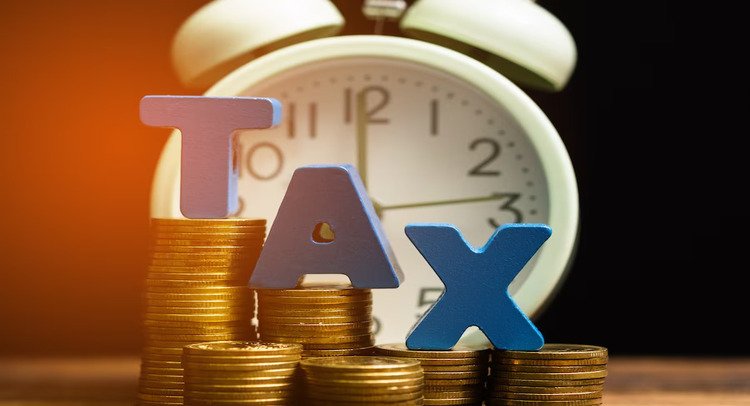Competent courts
Which courts have jurisdiction to hear tax disputes?
Typically, the tax dispute first arises before the tax authority, which acts in a quasi-judicial manner. It acts as both investigator and adjudicator. The powers of the first appellate body are co-extensive and coterminous to the primary tax authority. The second appellate forum is also a quasi-judicial one – the Income Tax Appellate Tribunal (ITAT), where the appeal is heard in a manner like that of a civil court. The next two appellate for a, the High Court and the Supreme Court, are formal civil courts that deal with only those matters that involve a substantial question of law.
Under indirect tax, the court of first instance for tax disputes is the Customs Excise and Service Tax Appellate Tribunal (the Tribunal). The Tribunal adjudicates disputes in relation to questions of law, questions of fact or both. Taxpayers can file an appeal before the Tribunal without any restriction; however, for the tax authorities, the CBIC prescribes monetary limits of tax demand, from time to time, exceeding which a case can be appealed before the Tribunal.
If either party to the appeal is not satisfied with the order of the Tribunal, then an appeal can be preferred before the jurisdictional High Court; however, such appeal can only be preferred if the issue involves a question of law – in other words, if an issue is related to a question of fact, then the order of the Tribunal is final. Further appeal against the order of the High Court can be preferred before the Supreme Court, the highest court in India. The order passed by the Supreme Court is final and binding upon both the parties and no further appeal can be preferred against the same.
Lodging a claim
How can tax disputes be brought before the courts?
A tax dispute arises before the tax authority by virtue of a deficiency notice served upon the taxpayer. The order of the first tax authority is appealable in its entirety before the first appellate authority. The order of the first appellate authority is entirely appealable before the ITAT. However, the order of the ITAT is appealable before the High Court only to the extent there arises a substantial question of law. The judgment of the High Court is further appealable before the Supreme Court.
A tax dispute can be brought before the Tribunal or court by way of appeal against any final decision of the tax authorities to levy tax or penalties. There is no minimum threshold prescribed for the taxpayer to file an appeal before the Tribunal or the court, as the case may be. However, the tax authorities can only file an appeal before the courts if the tax effect is more than as per the monetary limits prescribed by the CBDT or CBIC.
In order to bring an appeal before the Tribunal, the taxpayer has to file an appeal in the prescribed format along with the order against which appeal has been filed. The GST laws prescribe for a mandatory deposit of 10 per cent of the disputed amount if an appeal is preferred before the appellate authority; if the appeal is preferred before the Appellate Tribunal an additional 20 per cent of the disputed amount is to be deposited before filing the appeal.
An appeal against the order of the Tribunal lies with the High Court, and the time limit for filing the same is 180 days from the date of receipt of the order of the Tribunal by the taxpayer. The High Court may admit an appeal even after the lapse of this period if it deems fit.
Further, an appeal against the order of the High Court lies with the Supreme Court and the same can be filed only when the High Court grants a certificate stating that a case is fit for filing an appeal before the Supreme Court. If the High Court refuses to grant such certificate then an appeal can be brought before the Supreme Court by way of a Special Leave Petition.
The Constitution of India also provides an alternate remedy to taxpayers by way of writ petition before the jurisdictional High Court. A writ petition can be filed if gross injustice has been caused to the taxpayer by way of abuse of powers by the tax authorities, or there is wrongful exercise or excessive exercise of jurisdiction by the tax authorities. A writ can also be issued to quash an order that is vitiated by an error apparent on the face of the record or that is passed in violation of the principles of natural justice, or to quash a summons or an order that has been issued without application of mind. The High Court may issue a writ to release an assessee from illegal detention by the officer concerned. The Court will interfere by way of writ if the action is mala fide or arbitrary or does not comply with the statutory requirements, or if the action amounts to an exercise in futility. A writ petition acts as an effective tool in the legal system of India, leading to speedy redressal of the grievances of taxpayers and coming to the rescue of them as an overstepping authority in case of injustice caused by the tax authorities.
Combination of claims
Can tax claims affecting multiple tax returns or taxpayers be brought together?
Yes, tax claims affecting multiple tax returns are brought together by the appellate for a for the sake of convenient adjudication. Multiple taxpayers are also brought together before the ITAT and higher appellate for a for the sake of convenient and expeditious adjudication where common issues are to be adjudicated upon.
From an indirect tax adjudication perspective, yes, the Tribunal and the courts have the power to bring multiple claims together so that they can be heard at the same time, to pass litigation orders. Orders can be made for bringing multiple cases together by the Tribunal or court on its own initiative, or at the request of the parties.
Generally, where there are a number of cases that turn on the same point of law, the tax authorities and the taxpayers will agree which case is the most suitable to proceed as the lead case, and ask the Tribunal or court, as the case may be, to decide the issue on the basis of the facts of that particular year. Where, however, agreement cannot be reached, the parties may make representations to the court, and a hearing may occur during which the court will decide which case will be the lead case.
Pre-claim payments
Must the taxpayer pay the amounts in dispute into court before bringing a claim?
The taxpayer need not pay the whole amount of tax in dispute before bringing a claim before the court and can apply for a stay in respect of the demand raised by the tax authorities. The stay is granted by the tax authorities either on the complete amount of the tax demand or on deposit of a percentage of the amount of tax in dispute, which in case of income tax is 20 per cent for the first appellate authority, depending upon the circumstances.
In the case of indirect tax disputes, the taxpayer need not pay the whole amount of tax in dispute before bringing a claim before the court; however, a certain percentage of the disputed amount is required to be paid before preferring an appeal before the appellate authority or the Tribunal. The percentages differ depending on the appellate level in which the appeal is pending. The GST laws prescribe the maximum mandatory deposit of 30 per cent of the disputed amount. Once the mandatory deposit is made, stay against recovery of the remaining amount is automatically granted until the matter attains finality.
Cost recovery
To what extent can the costs of a dispute be recovered?
Both the taxpayer and the tax authorities are required to pay the prescribed fee at the time of preferring appeals before different appellate for a. Apart from such fee, discretionary costs can be imposed by the courts in exceptional cases on the taxpayer as well as on the tax authorities. There is no other way prescribed in law for recovery of the costs of a dispute.
It is in the inherent powers of the Tribunal and the courts to award costs to the taxpayer as well as to the tax authorities, as the case may be, if they consider that one of the parties has acted unreasonably in bringing, defending or conducting the proceedings before them. However, generally, it has been observed that it is difficult for litigants to recover the costs.
Third-party funding
Are there any restrictions on or rules relating to third-party funding or insurance for the costs of a tax dispute, including bringing a tax claim to court?
The income tax law is silent about third-party funding or insurance for the costs of a tax dispute, including bringing a tax claim to court. There appears to be no restriction on third parties (non-lawyers) funding the litigation and getting repaid after the outcome of the litigation. A taxpayer can also buy an insurance policy in order to cover the costs of a tax dispute.
Court decision maker
Who is the decision maker in the court? Is a jury trial available to hear tax disputes?
The decision maker in the ITAT is a bench consisting of a judicial member and an accountant member. In the High Court and the Supreme Court, appeals are decided by a bench consisting of two or more judges. No jury trial is available to hear tax disputes.
Depending on the stage of proceedings, the forum for adjudication will vary and accordingly so will the decision maker. In the Tribunal, the decision maker comprises a judicial member (having a law degree and a minimum of 10 years’ experience in law practice) and a technical member (member of Indian Customs or Central Excise Service Group A, or both, and who has held the post of Commissioner or above for at least three years). However, in the GST Appellate Tribunal (yet to become functional), the bench shall comprise a judicial member and two technical members (one representing the centre and the other the state).
In both, in the court of first and second appeal, namely, the High Court and Supreme Court respectively, the decision maker is a division bench comprising two judges. Jury trial is not available to hearings of tax disputes in India.
Time frames
What are the usual time frames for tax trials?
Tax trials, in other words, assessment proceedings before the tax officer, are required to be completed within two years from the end of the relevant financial year, which is extended to three years where the taxpayer has entered into international transactions and the case is referred to the transfer pricing officer. The first appeal against the assessment order is recommended to be disposed of within a period of one year from the end of the financial year in which the same is preferred, whereas a four-year period is recommended for the disposal of the second appeal. However, there is no time frame prescribed for completion of appeals pending before the High Court or the Supreme Court.
The time frame for each trial under indirect tax depends on the nature and complexity of the underlying dispute. Before a tax dispute reaches the tax tribunal, the adjudicating tax authorities may take about one to two years (first authority) plus another one to two years (first appellate authority) for completion of first appellate proceedings. At the level of the tax tribunal, while the prescribed outer limit is four years for passing orders, this time limit is discretionary and subject to further relaxation.
Disclosure requirements
What are the requirements concerning disclosure or a duty to present information for trial?
The tax authority, while conducting the trial, is bestowed with immense powers to call for information as well as personal presence. In its quest for information, the tax authority can in specified circumstances resort to the rather intrusive procedure of a survey at the business premises of the taxpayer.
During a tax trial before the court or before the tax tribunal, the parties file all the documents they seek to rely upon. If any such document was not produced at any stage before the tax authorities prior to approaching the Tribunal or court, liberty for relying on it must be sought before producing it. The Tribunal and court have inherent powers to summon production of such additional documents as they deem fit for adjudication of the dispute.
Permitted evidence
What evidence is permitted in a tax trial?
Oral as well as documentary evidence is permitted during the trial. The taxpayer is permitted to testify – in fact, the trial is based primarily on information furnished by the taxpayer. Testimony of the taxpayer is subject to the discretion of the tax authorities. Experts can also testify in exceptional cases. Evidence, as a matter of practice, is furnished in the English language, thus translation is required. It is pertinent to state that the tax trial is not subject to the strict law of evidence or code of civil procedure as the same is conducted in a quasi-judicial manner.
Under indirect tax, a tribunal is the last fact-finding authority in the dispute resolution system. It has inherent powers to summon the party involved in the dispute to make an oral statement (or more than one) during the proceedings.
An appeal can be preferred before the High Court and Supreme Court only on a substantial question of law, and these fora are not for fact-finding. Thus, no new evidence is brought before the courts at this level. However, the pleadings filed before the courts stating all necessary facts and averments supported are by an affidavit and it is presumed that the party making such averment is swearing on oath about the truth and veracity of such statements. Any error in such statements may attract penal consequences.
Permitted representation
Who can represent taxpayers in a tax trial? Who represents the tax authority?
Normally, the taxpayer can be represented by an advocate or a local certified public accountant before the tax tribunal; and by an advocate before the High Court and Supreme Court. If the taxpayer so decides, he or she can also represent themself before all the courts. Pro bono legal services are provided by various institutions if a taxpayer cannot afford legal representation. The tax authorities are represented by an officer of the Indian Revenue Services and in exceptional cases by a special counsel before the tax tribunal; and by an advocate from the panel of advocates maintained by the tax department before the High Court and Supreme Court. If a dispute involves a complex question of law, then the tax department engages the services of the Additional Solicitor General of India for representation in such matters before the High Court and Supreme Court.
Publicity of proceedings
Are tax trial proceedings public?
The proceedings before the tax authorities are conducted in person and are not public. However, the proceedings before the Tribunal or the courts are conducted in an open court. The written orders passed in such proceedings are also available to the public on the websites maintained by the respective forums. Certified copies of the documents filed by litigants in the courts are made available to the public only upon a specific request put forward in this regard before the appropriate authorities.
Burden of proof
Who has the burden of proof in a tax trial?
The burden of proof in a tax trial is on the taxpayer regarding the claims made by the taxpayer. The burden shifts upon the tax authority regarding the disallowance of expenditure or addition of income made during the trial, except in certain circumstances.
Case management process
Describe the case management process for a tax trial.
Tax trials are conducted by numerous jurisdictional tax authorities across the country as per the subjective administrative convenience and the time limits laid down in law. As there is no formal court conducting the trial, there is no formal case management process for a tax trial.
Appeal
Can a court decision be appealed? If so, on what basis?
Yes, a court decision can be appealed. Appeal against an order of the ITAT can be made before the High Court only if it involves a substantial question of law. A decision of the High Court, which presents a substantial question of law, or deals with questions upon which there are conflicting decisions of the High Court, may be appealed against before the Supreme Court.





